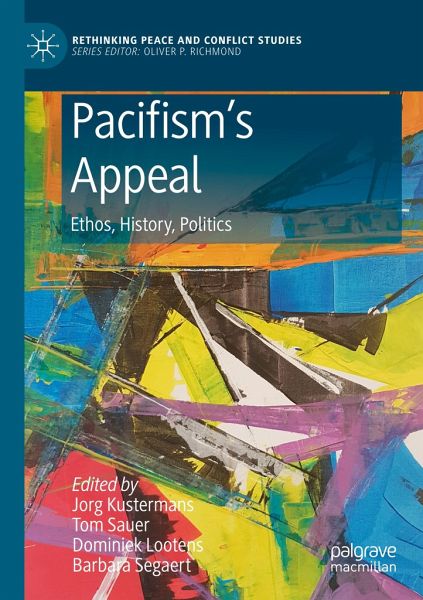
Pacifism's Appeal
Ethos, History, Politics
Herausgegeben: Kustermans, Jorg; Sauer, Tom; Lootens, Dominiek; Segaert, Barbara
Versandkostenfrei!
Versandfertig in 6-10 Tagen
65,99 €
inkl. MwSt.

PAYBACK Punkte
33 °P sammeln!
This volume examines the possibility - or need - of a revitalization of pacifism as a world-political practice. It takes as its point of departure the observation that although 'just war thinking' has long been dominant in Western debates about war and peace, recent events have served to temper enthusiasm about the doctrine. Pacifism has been much less prominent a stance in recent decades, but there is the impression that it may be staging a return. Just war thinking has to a large extent failed. Outright bellicism remains as undesirable as ever. Pacifism presents itself again as a possible al...
This volume examines the possibility - or need - of a revitalization of pacifism as a world-political practice. It takes as its point of departure the observation that although 'just war thinking' has long been dominant in Western debates about war and peace, recent events have served to temper enthusiasm about the doctrine. Pacifism has been much less prominent a stance in recent decades, but there is the impression that it may be staging a return. Just war thinking has to a large extent failed. Outright bellicism remains as undesirable as ever. Pacifism presents itself again as a possible alternative. Once upon a time the peace movement was popular, and pacifism with it. Pacifism appealed to people. It stirred hearts and minds. It inspired political action and institutional designs. This volume examines whether pacifism can claim its ground again and how it should be redefined in light of today's world-political circumstances.














